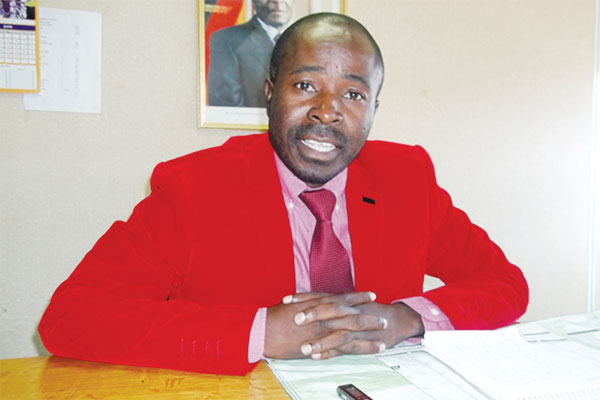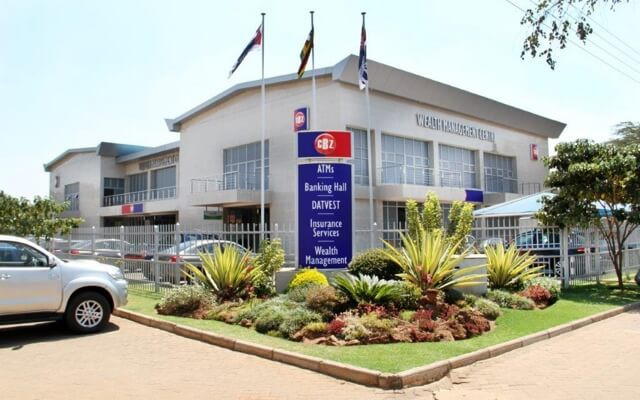
The growth of the retail sector is stymied by the prevailing foreign currency shortages forcing manufacturers to seek the precious dollars on the parallel market. NewsDay business reporter Tarisai Mandizha (ND) spoke to Confederation of Zimbabwe Retailers (CRZ) president Denford Mutashu (DM) on how the sector is faring. Below are the excerpts.

ND: What is the current state of the retail sector in Zimbabwe?
DM: The current state of the retail sector in Zimbabwe is characterised by declining demand, the persisting liquidity challenges, rise in plastic and mobile money transactions in the formal retail/wholesale, rise in vending at undesignated places with vending carts traffic competing with vehicle traffic especially in the capital city. There is also a tremendous rise in stocking of locally manufactured goods in the formal retail/wholesale.
ND: What is your response to the accusations by the Reserve Bank of Zimbabwe (RBZ) that some retailers are linking their point-of-sale (pos)machines to their personal bank?
DM: The foreign currency shortages are an impediment to doing business in the country. The government should help the CZR in its drive to ensure all businesses in the country are registered as that has created a permanent leakage of cash from formal circulation while the same are promoting the smuggling of goods into the country. It will also widen the tax base and government can actually introduce presumptive tax on such businesses, for example, if each business pays an average of $50 per month to the fiscus.
ND: Reserve Bank of Zimbabwe (RBZ) governor John Mangudya also mentioned that there is currently serious indiscipline in the market and to date a number of retailers have been taken to court due to failure to bank cash. What’s being done to address this indiscipline?
DM: The government should implement the reserve sector policy and protect the locals who have been muscled out of the retail space by foreigners who have been privileged to invest in the sector without observing the indigenous laws.
Most of the foreign-owned shops are refusing to embrace plastic and mobile money. They demand cash from consumers yet they have also refused to open bank accounts with local banks. They should toe the line and observe the laws of the country.
- Chamisa under fire over US$120K donation
- Mavhunga puts DeMbare into Chibuku quarterfinals
- Pension funds bet on Cabora Bassa oilfields
- Councils defy govt fire tender directive
Keep Reading
ND: What is being done to ensure that rural retailers have POS machines given the biting cash shortages?
DM: The rural retailers have also borne the brunt of the liquidity situation in the country and CZR calls upon the RBZ to increase cash allocations to rural banks. Meanwhile, CZR is in discussions with Indian investors who have come up with a payment solution for the rural businesses who have no access to internet connectivity and poor POS infrastructure. We also urge rural retailers to procure solar energy as an alternative to solve the power issues.
ND: How many POS machines are currently on the market and how much does the country’s retail sector require?
DM: The RBZ should be applauded for supplying the market with 40 600 POS machines, thus, far and we are quite hopeful that the figure may increase significantly if the RBZ imports the machines on behalf of the market. Initially, the CZR is looking at a target of 100 000 machines before the end of the year and maybe its high time the RBZ even open the procurement of the POS machines to private players since banks have failed to meet the demand.
ND: What do you suggest should be done to address the cash challenges?
DM: To address the cash challenges, there is need to register all traders in the country. Business should stop trading in foreign currency and resort to their core activities.
Meanwhile, banks should also make banking attractive. They should desist from the practice of smiling when someone is making cash deposit and frown at the same person when he/she visits the same bank intending to make a withdrawal. It is also critical that banks desist from insider cash trading and ensure equitable distribution of the cash they get from RBZ and depositors. The country should step up on local production to ease the foreign currency shortages and let’s increase exports.
ND: Where do you see the retail sector by year-end?
DM: The retail sector outlook is quite positive and we are looking forward to finish the year stronger despite the challenges in the economy. The recently announced mid-term monetary policy has also set the right tone
ND: Is the retail sector happy with the current allocation of foreign currency by the RBZ?
DM: The retail sector is happy about the current allocation of foreign currency as it is operating under a difficult environment of limited resources as well. Yes more could be done. Government expenditure should go down to allow the fiscus and the apex bank breathing space to spur support to the productive sector. The impending injection of $300 million is welcome insofar as the RBZ has to work on the leakage that got bond notes to be shipped to neighbouring countries and out of the formal circulation.
ND: Why is Mangudya slow in taming the rising foreign currency black market?
DM: We wonder. It takes a week of an intensified operation to raid all forex black market spots. The governor should bring in all the security forces in the country in a joint operation which I have coined “Operation Cash Wakaiwanepi” rather than to let the economy slide into chaos as is the current situation. The operation would have then tamed the illegal cash sources and the dealers. The same operation should be extended to clean up the capital city Harare and rid it of the mushika-shikas (pirate taxis) and the vending taking place all over.











